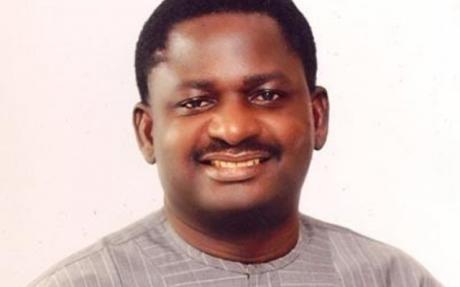Editors in Nigeria, under the aegis of the Nigerian Guild of Editors, have advised the government to resist the temptation of repressing the media.
The NGE, in a statement by its President, Femi Adesina, said that successive administrations in the country have always treated the media with suspicion or as an adversary.
The statement, which coincides with the yearly World Press Freedom Day, celebrated on May 3, said the time had come for government to see the press as a partner in progress and not an enemy.
Adesina said Nigerian editors are responsible Nigerians who are passionate about the country and act accordingly, hence the need for the government not to hound them.
The statement reads in full: “As we celebrate World Press Freedom Day, observed on May 3 of every year, it affords us another opportunity to reflect on the state of the media in our country.
“The media should be partners in development, worthy allies in the nurturing of our democracy and quest for a great country, but rather curiously, successive administrations in Nigeria have always treated the media with suspicion, if not as some sort of adversary. This is a regrettable mindset, which a day like today can help correct.
“Nigeria’s robust and vibrant media has a worthy history of commitment to noble causes, and played key roles in the struggle for independence, democratic rule, social justice, freedom of speech, human rights, and the like. Today, the media is still in the vanguard of upholding all that is noble, just, fair, and, indeed, all that would redound to the progress and development of our country.
“Recent developments in the country have, however, reinforced the uneasy relationship that often exists between government and the media. But we urge the government to stoutly resist anything that might bear the slightest semblance to a curtailment of the freedom of the press, either overtly or covertly. The media parades professionals who are passionate and committed to the growth and development of the country on all fronts, and they do not deserve to be hounded, repressed or harassed in any form. If there are inadvertent infractions of the rules, we expect nothing but the strictest conformity to due process and the rule of law in addressing such. There are certain approaches that are incompatible with democratic norms. We do not expect that our governments at various levels will still resort to such, 14 years into unbroken democratic rule.
“The media industry today groans under high cost of production inputs. Let the government use the occasion of World Press Freedom Day today to appraise how it can make life easier for the press. An industry that operates under near-economic strangulation, due to unfriendly policies from government, cannot be said to be really free.
Nigerian editors will always give their best to engender cohesion and harmony in the polity. It is our sacred duty and calling. We will always uphold socially responsible acts and practices, and play to the hilt our roles as partners in progress, towards building a country where no man is oppressed, intimidated or harassed.
“Free press means free expression, and our country needs such to develop, and to hold its own in the comity of nations.
“Freedom is a bulwark against tyranny. But freedom is also fragile, and World Press Freedom Day is an opportunity to reflect on this. The line between press freedom and repression is quite thin, and eternal vigilance is needed at all times, lest we find ourselves at the wrong side of the divide. Nigerian editors will continue to stand for ethical practices in an atmosphere free of any foreboding or apprehension. That is the essence of World Press Freedom Day.”
Previous ArticleWhy we need to delineate constituencies again, by Attahiru Jega
Next Article The imperative of Boko Haram amnesty, by Ameh Monday


